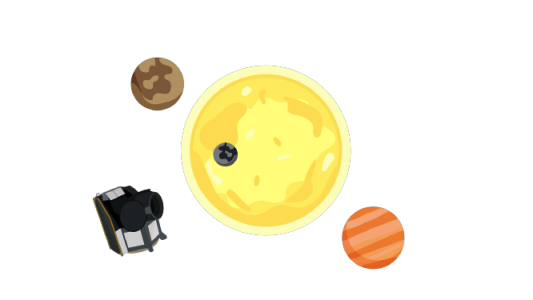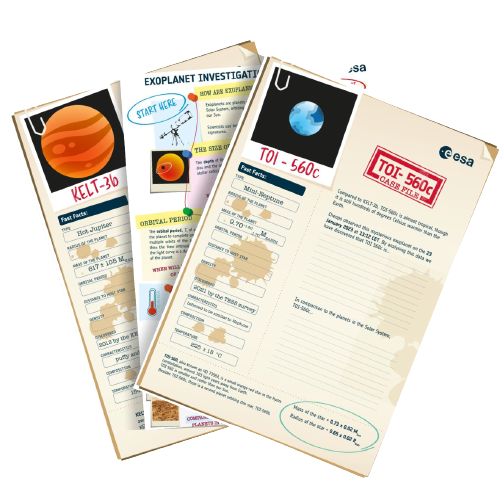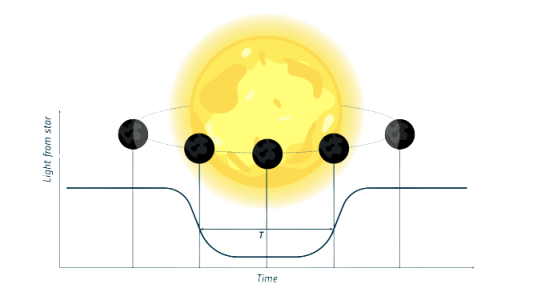


Hack an Exoplanet is an inquiry-based astronomy project on planets outside the Solar System. By completing this set of activities, secondary students will get the opportunity to analyse real satellite data collected by Cheops and hack these mysterious alien worlds. This activity is suggested for teams of students aged 14 to 19 years old.

Set of two quizzes to introduce the most important concepts and test your exoplanet pre-knowledge
Duration: < 30 minutes

We need your help to profile mysterious exoplanets using real satellite data. Follow the step-by-step guide and complete the casefiles

In this set of three classroom activities you learn more about transit models and how to build your own
Use real satellite data to profile these mysterious exoplanets observed by Cheops

Hot Jupiter

Mini Neptune

Super Earth and Neptune-like Giant
Are you a teacher or educator? If you are not sure how to start the investigation activity with your students, visit our educators guide page that includes information and support on how to present the hack an exoplanet activity to your students. The activities can be done in the classroom, at home or in a hackathon-format.
For extra educational supporting materials, visit our resources section to find tailored classroom resources and other educational supporting materials for guidance, such as videos and guides.
In early 2023, ESA’s Cheops (CHaracterising ExOPlanet Satellite) observed two exoplanet targets, KELT-3b and TOI-560c. By joining a Hack an Exoplanet event, teams of secondary students will get the opportunity to analyse real satellite data collected by Cheops and hack these mysterious alien worlds. This activity is targeted at teams of students aged 14 to 19 years old.
Online and physical hackathons are being organised during April, May and June 2023, and you can even host your own hackathon at your school!
Find out below more about each event.
All teachers and educators are welcome to organise or join an Hack an Exoplanet activity with your teams of students. Find out below how you can join or host an event.
If you are from Austria, Czech Republic, Denmark, Greece, Norway, Portugal, Spain and Sweden you can find out more about activities in your country, by contacting your national contact points.
Join an existing event organised by a different entity.
For example the ESA Hack an Exoplanet virtual hackathon event
Create your own event (private or public).
For example as part of the school science week or as a classroom activity
If you are from Austria, Czech Republic, Denmark, Greece, Norway, Portugal, Spain and Sweden you can find out more about activities in your country, by contacting your national contact points.
Duration: 2h 30m
Language: English
During this virtual hackathon our team of experts will guide you in discovering how to analyse the Cheops data to uncover the size, orbital period and distance, habitability, and composition of these two distant worlds. Follow along to uncover the properties of the exoplanets and become a real exoplanet detective.
You can present Challenge 1, the analysis of KELT-3b, directly to your students with this virtual event.


After the hackathon, submit your project for a chance to win the Best Project Prize. The winning teams will receive ESA goodies and participate in a webinar with 2019 Nobel Prize winner Didier Queloz and ask him questions live! The webinar will take place on 17 July 2023, at 14h CEST.
Didier is a professor of physics and astronomy at the University of Cambridge and ETH Zurich. He is one of the originators of the “exoplanet revolution” in astrophysics. In 1995, as part of his PhD, he and his supervisor announced the first discovery of a giant planet orbiting another sun-like star outside the Solar System.